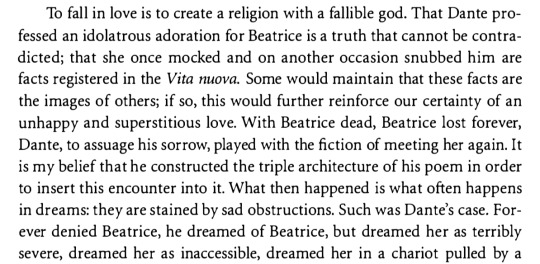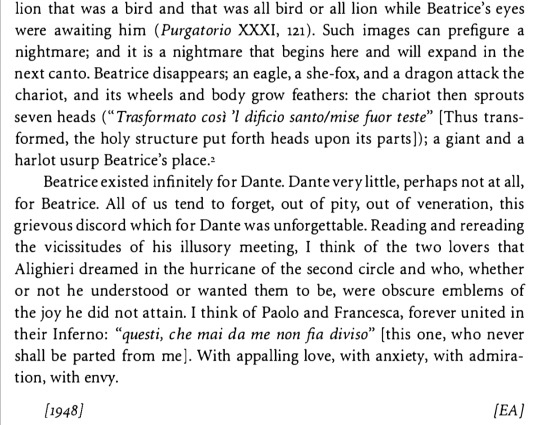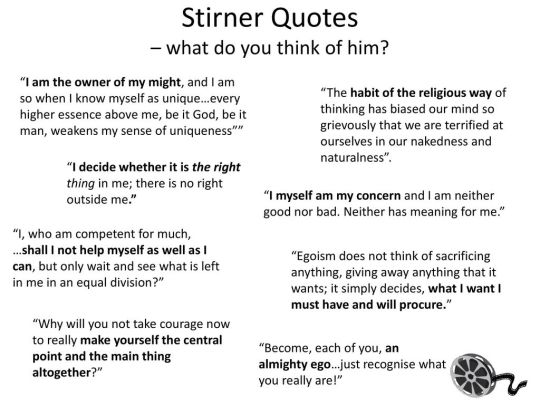Text
Created this poem or song (Just for Fun):
Max Stirner's philosophy of the self, A unique individual, with no one else
In control, but himself alone No gods, no morals, a life he's shown
The ego, the self, is all that he sees Not society, nor the state, but only "me"
No duties, no obligations to any kind, Only his own desires, and will to stay alive
The concept of ownership, is not of things
But of oneself, and what a man brings
To the table, in his own right
A free spirit, free from any fright
Of conformity, or social norms
The individual, self-defined forms
A life of freedom, and personal power
Not bound by any man-made tower
So let us live, with our own will Not bound by others, or what they instill
But free to be, and free to see
The world as we wish, just you and me.
#egoism#max stirner#nietzsche#poemsdaily#prose poem#anarchism#leftism#anti capitalist#capitalism is violence#carl jung#psychoanalysis
10 notes
·
View notes
Text

Reblog if you slack off, refuse to deploy your human capital and love to steal societal wealth
102 notes
·
View notes
Text
There's something so disturbing about the way companies expect you to not only do your job but also put on an entire performance of pretending to like the company.
You, dear manager, know I'm being exploited. You yourself are being exploited. None of us would be here if our livelihoods didn't depend on it. We all know this, yet we still have to pretend that's not what's happening.
They'll order pizza one day and expect you to be overcome with joy and driven to write a thank you email to management.
They'll make a shitty decision that makes your workday significantly more miserable and expect you to suck it up, shut up and do your work without a single complaint.
They'll take away benefits and tell you it's actually a good thing. Yes, we know you loved WFH, but it's for the best! Now come to the office and pretend to be happy about it (it's obligatory).
Every day we all perform for each other, even when nobody is actively enforcing it. The fear of being found out is enough.
Because we are constantly aware that those who aren't playing the role of passionate and loyal worker drone well enough will be the first ones considered when someone needs to be fired.
122 notes
·
View notes
Text
“The problem with a word such as ‘nihilist’ is, of course, that it is attached to any number of different conceptions, with meanings that sometimes overlap or are complementary and sometimes disjunctive or even contradictory. This is not a problem in Nietzsche and Philosophy. In the chapter ‘The Overman: Against the Dialectic’, Deleuze provides us with a systematic account of consecutive modes of nihilism that Nietzsche overcomes (Deleuze 1983: 147). In accordance with his account of Stirner as the final dialectician, we would expect this development of nihilism to culminate in the ‘extreme nihilism’ of Stirner (1983: 162). However, the picture we get is quite different: ‘negative nihilism is replaced by reactive nihilism, reactive nihilism ends in passive nihilism’ (151). In negative nihilism life is ‘depreciated from the height of higher values’, ‘God, essence, the good, truth’ (148, 147). Reactive nihilism results in a ‘pessimism of weakness’ because it ‘denies God, the good and even truth’, leaving behind ‘a depreciated life which now continues in a world without values, stripped of meaning and purpose’ (148). And where reactive nihilism is led by a ‘will to nothingness’, in passive nihilism the reactive forces break with will completely, ‘fading away passively rather than being led from outside’ (148–9). This is Deleuze’s account of Nietzsche’s analysis of nihilism, which he links to a historical sequence of different systems of thought: ‘Negative, reactive and passive nihilism: for Nietzsche one and the same history is marked out by Judaism, Christianity, the reformation, free thought, democratic and socialist ideology’ (152). Two things are immediately obvious: first, the historical progression of thought is practically identical to that which Stirner attacks at length in The Ego and Its Own, the second section of which is structured into the ancients, the moderns and the free, who in turn are differentiated into political, social and humane liberalism (Stirner 1995: vii); second, the ‘extreme nihilism’ that is attributed to Stirner and allegedly overcome by Nietzsche does not figure in this account at all (Deleuze 1983: 162).
Ronald Hinner has pointed out several ways in which Stirner’s perspective anticipates Deleuze’s account of Nietzsche’s thought (Hinner 2013: 17–23). One of these is the central role of enjoyment and affirmation. For instance, Deleuze describes the difference between Nietzsche’s method and dialectics: ‘For the speculative element of negation, opposition or contradiction, Nietzsche substitutes the practical element of difference, the object of affirmation and enjoyment. It is in this sense that there is a Nietzschean empiricism’ (Deleuze 1983: 9), and Hinner (2013: 17) sees this mirrored in Stirner’s statement that ‘uncouth jubilation still has the potential, if necessary, to become critical jubilation, an egoistic critique’ (Stirner 2012: 72). According to Hinner, we find in Stirner’s egoism the radical elaboration of ‘[i]rresponsibility – Nietzsche’s most noble and beautiful secret’ (Deleuze 1983: 21). This assessment seems quite accurate considering how much energy Stirner devotes to attacking what Deleuze describes as the two elements of responsibility, as well as central elements of ‘our way of thinking and interpreting existence in general’; that is, ‘ressentiment (it’s your fault) and bad conscience (it’s my fault)’ (21). Two examples of this are Stirner’s critique of resentment in the category of the inhuman and his attack on self-renunciation and the suppression of one’s libido in the passage on the young girl whose ‘habit of renunciation cools the heat of [her] desire’ (Stirner 1995: 59). Deleuze himself begins his systematic treatment of nihilism thus:
In the word nihilism nihil does not signify non-being but primarily a value of nil. Life takes on a value of nil insofar as it is denied and depreciated. Depreciation always presupposes a fiction: it is by means of fiction that one falsifies and depreciates, it is by means of fiction that something is opposed to life. (1983: 147)
To anyone who has read Stirner it is clear that he does not depreciate life but, on the contrary, radically affirms it. It is equally clear that he does not achieve this by means of fiction and falsification but, conversely, by destroying the fiction of the higher value of spooks. Unlike Nietzsche, Stirner does not require the metaphysics of the eternal return in order to overcome nihilism. According to this description, Stirner’s thought cannot qualify as nihilism. On the contrary, Stirner fights against idealism, and the ideologies that succeed it, on the grounds that they are fictions which denigrate the lives of those who cannot see them as such.”
—Elmo Feiten, Deleuze and Stirner: Ties, Tensions and Rifts
28 notes
·
View notes
Text
the fear of dying alone, or the general connotation of aloneness with failure and misery, is a spook and i reject that shit
10 notes
·
View notes
Text
“‘I too am a slave’ - these are the new words spoken by the master.”
— D&G, Anti-Oedipus
98 notes
·
View notes
Text
“The problem with a word such as ‘nihilist’ is, of course, that it is attached to any number of different conceptions, with meanings that sometimes overlap or are complementary and sometimes disjunctive or even contradictory. This is not a problem in Nietzsche and Philosophy. In the chapter ‘The Overman: Against the Dialectic’, Deleuze provides us with a systematic account of consecutive modes of nihilism that Nietzsche overcomes (Deleuze 1983: 147). In accordance with his account of Stirner as the final dialectician, we would expect this development of nihilism to culminate in the ‘extreme nihilism’ of Stirner (1983: 162). However, the picture we get is quite different: ‘negative nihilism is replaced by reactive nihilism, reactive nihilism ends in passive nihilism’ (151). In negative nihilism life is ‘depreciated from the height of higher values’, ‘God, essence, the good, truth’ (148, 147). Reactive nihilism results in a ‘pessimism of weakness’ because it ‘denies God, the good and even truth’, leaving behind ‘a depreciated life which now continues in a world without values, stripped of meaning and purpose’ (148). And where reactive nihilism is led by a ‘will to nothingness’, in passive nihilism the reactive forces break with will completely, ‘fading away passively rather than being led from outside’ (148–9). This is Deleuze’s account of Nietzsche’s analysis of nihilism, which he links to a historical sequence of different systems of thought: ‘Negative, reactive and passive nihilism: for Nietzsche one and the same history is marked out by Judaism, Christianity, the reformation, free thought, democratic and socialist ideology’ (152). Two things are immediately obvious: first, the historical progression of thought is practically identical to that which Stirner attacks at length in The Ego and Its Own, the second section of which is structured into the ancients, the moderns and the free, who in turn are differentiated into political, social and humane liberalism (Stirner 1995: vii); second, the ‘extreme nihilism’ that is attributed to Stirner and allegedly overcome by Nietzsche does not figure in this account at all (Deleuze 1983: 162).
Ronald Hinner has pointed out several ways in which Stirner’s perspective anticipates Deleuze’s account of Nietzsche’s thought (Hinner 2013: 17–23). One of these is the central role of enjoyment and affirmation. For instance, Deleuze describes the difference between Nietzsche’s method and dialectics: ‘For the speculative element of negation, opposition or contradiction, Nietzsche substitutes the practical element of difference, the object of affirmation and enjoyment. It is in this sense that there is a Nietzschean empiricism’ (Deleuze 1983: 9), and Hinner (2013: 17) sees this mirrored in Stirner’s statement that ‘uncouth jubilation still has the potential, if necessary, to become critical jubilation, an egoistic critique’ (Stirner 2012: 72). According to Hinner, we find in Stirner’s egoism the radical elaboration of ‘[i]rresponsibility – Nietzsche’s most noble and beautiful secret’ (Deleuze 1983: 21). This assessment seems quite accurate considering how much energy Stirner devotes to attacking what Deleuze describes as the two elements of responsibility, as well as central elements of ‘our way of thinking and interpreting existence in general’; that is, ‘ressentiment (it’s your fault) and bad conscience (it’s my fault)’ (21). Two examples of this are Stirner’s critique of resentment in the category of the inhuman and his attack on self-renunciation and the suppression of one’s libido in the passage on the young girl whose ‘habit of renunciation cools the heat of [her] desire’ (Stirner 1995: 59). Deleuze himself begins his systematic treatment of nihilism thus:
In the word nihilism nihil does not signify non-being but primarily a value of nil. Life takes on a value of nil insofar as it is denied and depreciated. Depreciation always presupposes a fiction: it is by means of fiction that one falsifies and depreciates, it is by means of fiction that something is opposed to life. (1983: 147)
To anyone who has read Stirner it is clear that he does not depreciate life but, on the contrary, radically affirms it. It is equally clear that he does not achieve this by means of fiction and falsification but, conversely, by destroying the fiction of the higher value of spooks. Unlike Nietzsche, Stirner does not require the metaphysics of the eternal return in order to overcome nihilism. According to this description, Stirner’s thought cannot qualify as nihilism. On the contrary, Stirner fights against idealism, and the ideologies that succeed it, on the grounds that they are fictions which denigrate the lives of those who cannot see them as such.”
—Elmo Feiten, Deleuze and Stirner: Ties, Tensions and Rifts
28 notes
·
View notes
Text


--Jorge Luis Borges on Dante's Commedia, from "The Meeting in a Dream"
1K notes
·
View notes
Text

— Jeanette Winterson, from “Why Be Happy When You Could Be Normal.”
4K notes
·
View notes
Text
I told him it was about meaning, and he suggested, very politely, that might be a kind of psychosis.
‘You think meaning is psychosis?’
‘An obsession with meaning, at the expense of the ordinary shape of life, might be understood as psychosis, yes.’
‘I do not accept that life has an ordinary shape, or that there is anything ordinary about life at all. We make it ordinary, but it is not.’
[…] I said, ‘How would you define psychosis?’
He wrote on a piece of paper with his pencil:
Psychosis: out of touch with reality.
Since then, I have been trying to find out what reality is, so that I can touch it.
Jeanette Winterson, from Lighthousekeeping
1K notes
·
View notes
Text
“Everything the far right touches dies. The far right can’t run anything. It doesn’t have the people or the talent or the intellect or skills or even the will, really. That’s because it isn’t interested in anything but hate and violence, and gaslighting the rest of us into accepting it as “freedom.” It just wants power for the sake of aggression, to build Nietzschean-Darwinian systems in which the “strong,” meaning the angriest and most violent, rise, and everyone else is under their thumb, or else. But you can’t actually build anything much that way.”
— The Lesson of Elon Musk’s Twitter? Everything the Far Right Touches Dies.
753 notes
·
View notes
Text
Freedom teaches only: Get yourselves rid, relieve yourselves, of everything burdensome; it does not teach you who you yourselves are. Rid, rid! so call, get rid even of yourselves, “deny yourselves.” But ownness calls you back to yourselves, it says “Come to yourself!”
1 note
·
View note
Text
For Hegel, Individual freedom is the driving force of the history. Oriented worlds where Individual Freedom was limited to one or some. Roman Empire and Christian revolutions like Reformation had a turning role or revolutionary roles in history where history turned to.
0 notes
Photo

Leslie Paul Thiele, Friedrich Nietzsche and the Politics of the Soul: A Study of Heroic Individualism
221 notes
·
View notes


